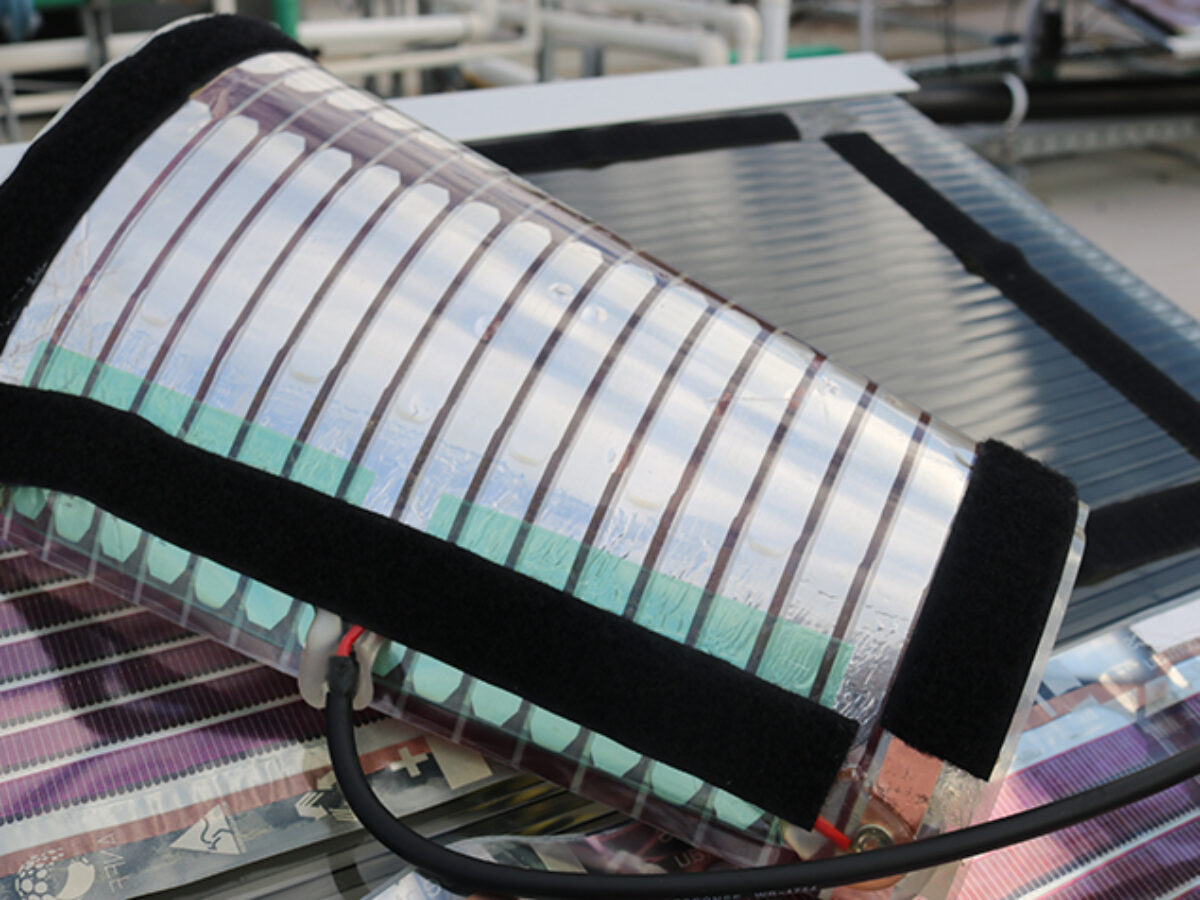Printed solar cells could boost functional printing industries

The University of Newcastle has unveilled an innovative solution to reducing the cost of solar photo voltaic power.
The University this week inaugurated a printed solar demonstration plant made from photo sensitive and conductive inks printed onto ultra-thin, clear laminated sheets.
The 100 square metre PV site was rapidly manufactured, enabling accelerated deployment in the market.
The University's Professor Paul Dastoor said: “There are just three demonstration sites at this scale that we know of anywhere in the world, so Australia has joined quite an elite group of global leaders poised to make this technology a commercial reality.”
Professor Dastoor said the University's laboratory-scale printer could produce hundreds of square metres of material a day, and it was easy to envisage scaling that up to square kilometres at a time.
“If you had just ten of these printers operating around the clock we could print enough material to deliver power to 1000 homes per day.
“The low-cost and speed at which this technology can be deployed is exciting, particularly in the current Australian energy context where we need to find solutions, and quickly, to reduce demand on base-load power.”
The advanced electronic inks are synthesised in the University's Centre for Organic Electronics using non-toxic carbon-based materials.
They are used directly or processed into water-based inks and paints.
Professor Dastoor said the inks would be tested for durability and, if siuccessful, had major implications for the printing industry.
“The material will deliver a new, ‘functional printing’ revenue stream for the printing industry – the second largest manufacturing industry in Australia.”
The company is working with potential end-users including logistics solutions provider, CHEP Australia.
Professor Dastoor will demonstrate his printing technique live at printing tradeshow Pacprint at the Melbourne Convention and Exhibition Centre from 23-26 May.
Picture: University of Newcastle
Subscribe to our free @AuManufacturing newsletter here.
Topics Manufacturing News Technology
@aumanufacturing Sections
Analysis and Commentary Awards casino reviews Defence Gambling Manufacturing News Online Casino Podcast Technology Videos





